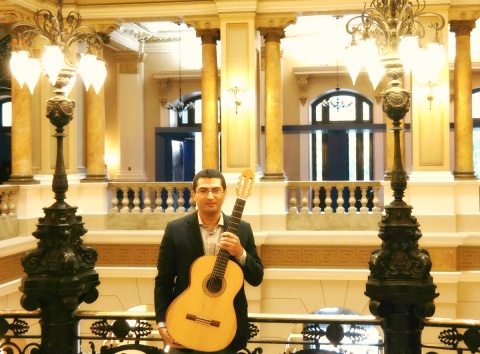galeria-2341-humberto-amorim-origens-violao-brasil.jpg

The project entitled The Guitar in Brazil: from stories to History should show how the instrument spread among the various socio-cultural dynamics, appearing both in the hands of runaway slaves, as well as in scores ads in specialty stores.
The resulting book will also categorize and analyze the incidence of terms such as viola, violão and guitarra in Brazilian journals between the decades 1800-1830: "with the help of researcher Pedro Kilson, we are scrutinizing hundreds of documents, transcripts and unpublished quotes that bring new light on how was the guitar presence in the Brazilian cultural dynamics of the nineteenth century, as well as identifying the activities of its early performers, teachers, traders and concert performers, among others".
The goal is to offer – both to the lay public and the experts –, answers to questions that revolve around the instrument's History in Brazil: in what circumstances did it arrive in Brazil? What role did it occupy in society back then? What was its reach and penetration in different social strata? What factors gave rise to its earlier practitioners? What kind of repertoire, techniques and materials were employed? And finally, is it possible to trace any relations between present day techniques and those initiated in the early decades of the nineteenth century?
"It's like facing an adventure over a dense forest, a few tracks and many harsh ways, but for this very reason, it becomes fascinating with each new fraction of History unfolding before us" , concludes the researcher.
Humberto Amorim is a resident researcher at the National Library and professor at the Music School of the Federal University of Rio de Janeiro (UFRJ). PhD in musicology, master in performance practice, Humberto also holds three degrees in music, and has obtained the Master in classical guitar at the University of Alicante (Spain). He published two books by the Brazilian Academy of Music: Ricardo Tacuchian and Guitar (2014) and Heitor Villa-Lobos and the Guitar (2009), the latter considered by critics "the greatest research ever undertaken on the subject in Brazil" (magazine Guitar Pro , 2009), "a detailed study" (Concerto Magazine, 2010) and "must-read for anyone who wants to understand the composer's work for the instrument" (Journal of AV-Rio, 2010).

